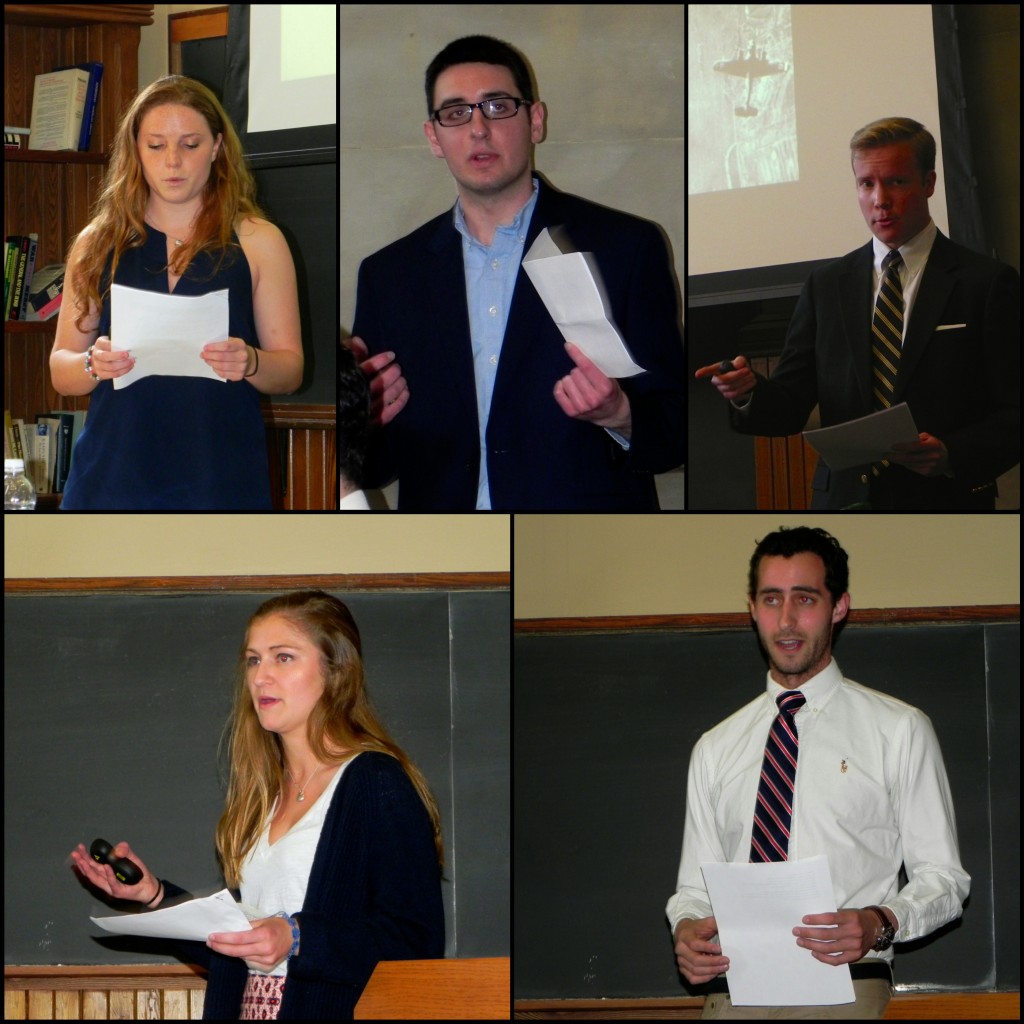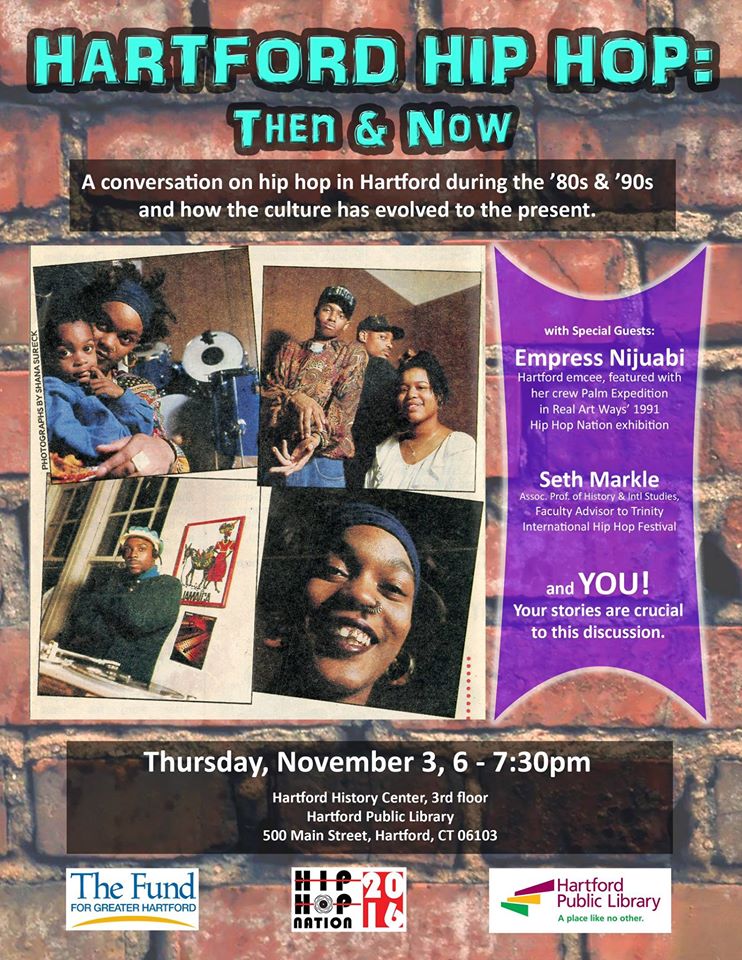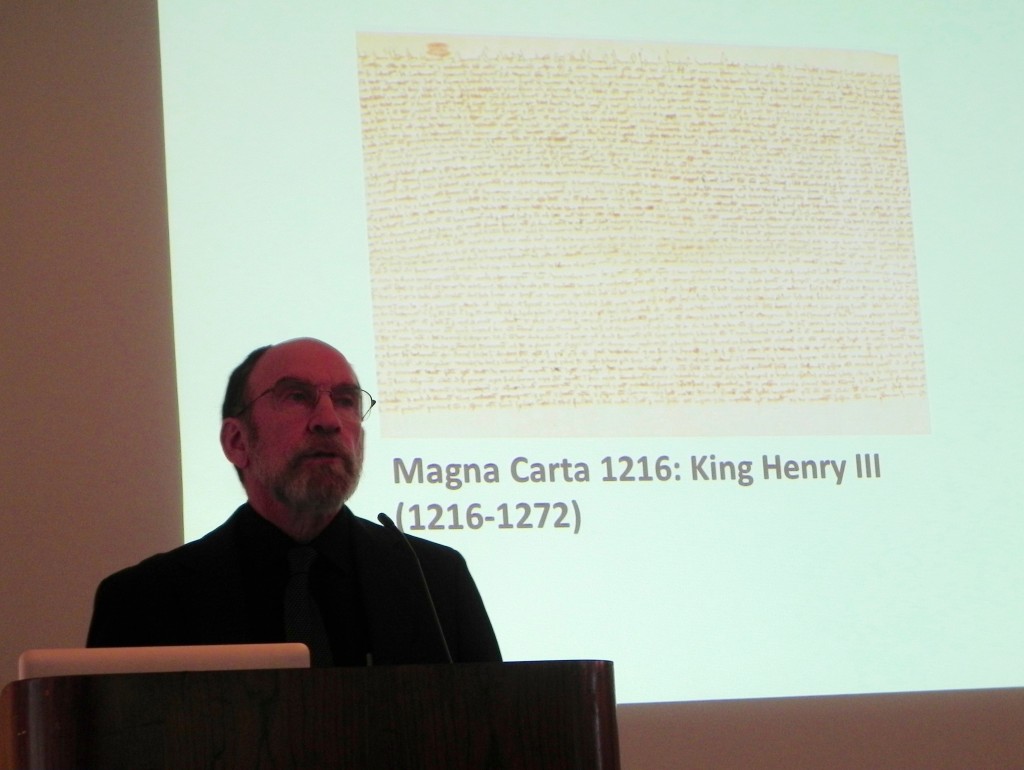Home » American History (Page 2)
Category Archives: American History
A Historic Tour of Hartford: A Bucket List
By: Chelsey Crabbe (History ‘17)

As a senior inching towards graduation, I’m realizing that my friends and I still have not fully experienced Hartford. There are restaurants, events, and places still to be discovered in these shorts weeks leading up to the 21st of May. Specifically, my interest in history has largely been under-utilized within the Hartford context having never been to the Mark Twain House and many other historic locations. Trinity students never realize until the very end that Hartford does indeed have it…I’m not exactly sure what “it” is, but there is a certain charm to this place I’ve called home for four years. Especially in terms of history, Hartford was once an “it” town, a booming insurance capital, a place of both industry and creative, attracting literary giants like good ol’ Samuel Clemens. Therefore, I’ve decided to compile a bucket place of places to explore before my time here in Hartford is up. Hopefully, younger Trinity students will follow along and explore Hartford before they, too, are seniors nearing graduation.
(more…)
D.B. Cooper and the Hijacking of Northwest Airlines flight 305
By: James Barret (History ’17)
For my final paper in ‘HIST 344: America’s Most Wanted’ taught by Professor Greenberg (a course that all history majors should take), I will be writing about D.B Cooper’s infamous hijacking of Northwest Airlines flight 305 and extortion of $200,000. Although the Cooper case has many different elements, one that I will likely not be able to address in my paper due to the parameters of the assignment is the aftermath of the hijacking. The way I see it, the general public’s fascination with Cooper comes down to two major questions: Who was this man? And perhaps more importantly, did he survive his skydive into a cold rainy night somewhere in the woods north of Portland, Oregon? I will certainly work to answer these questions, or at the very least put together a guess in the final paper. But a third question has been bugging me lately and it is much more abstract. What exactly does the world gain from a story like Cooper’s? And furthermore, what would happen if there became definitive proof as to who this man was and what happened to him? Similar questions have been asked before, specifically by The New York Times Geoffrey Gray. Gray and I reach similar conclusions but differ slightly, I see Cooper as interesting because all the options are still on the table. Gray believes that Cooper enthusiasts will lose their drive if they know what all went down.
“My Senior Thesis and its Portrayal in Pop Culture”
Chelsey Crabbe ‘17
I am a senior Thesis writer whose topic has been portrayed within a Hollywood movie, a scenario that even clouded my own judgment after watching the film. I am researching the Monuments, Fine Arts, and Archives program (MFAA), a military unit attributed with protecting and salvaging Europe’s greatest cultural treasures against the Nazi regime during World War II. My focus is on the subsequent cultural restitution, or return, that occurred after the war as the Allies found themselves with troves of Nazi loot. I found this topic to be quite fascinating since I am passionate about cultural heritage, a fan of Art History, and a student needing to satisfy her European interests with a topic that had some sources in English. Therefore, I chose to tell the story of the Monuments Men, the full story, and not just the one that would attract moviegoers.
(more…)
The Future is Female! Profiles of the Women Senior Thesis Writers of 2017
Written by: Chelsea Crabbe (History, 2017)
In honor of Women History Month, I’ve decided to write a little bit about our female thesis writers, including myself. As Viginia Woolf insightfully claimed, “for most of history, Anonymous was a woman.” Now, not only are topics of gender becoming valued areas of research within the historical field, at Trinity, five women are exerting their talents within this area of study at the highest of calibers. I have always found some subjects to be gendered. For instance, math and the sciences have been predominantly a male-dominated field, for whatever reason. However, I have also categorized the subject of History as being historically male and with good reason. For centuries and centuries, our histories were written by men and, during this resurgence of women’s rights activism today, I am proud to say that we have five females writing not only histories, but challenging the field, a field that oftentimes can be rigid and traditional. Although our topics may be starkly different, we share a common bond as women within the field of History. While I am obsessing over lost paintings, Sedona is spending hours analyzing the movement of cows and Elizabeth is testing her limits by deciphering colonial manuscripts. Elly is encapsulated by her powerful women who love power and parties and Callie is wrapping her head around what do with a convicted Nazi. We’re committed to our topics and wouldn’t be in the library at all hours if we didn’t love history. I’m sure that my fellow peers would agree that we are history nerds and we’re proud! And you can be sure that our theses will certainly not be signed anonymous.
Celebrating Black History Month: Connecticut’s Paul Robeson
Written by: Dylan Hebert (History, Class of 2017)
Known as the most talented man of the twentieth century, Paul Robeson is famous for his role as a prominent singer, actor, social activist, athlete, and lawyer. He was the ultimate Renaissance man. Born in Princeton, New Jersey in 1898, his mother was a teacher and his father was a Presbyterian Minister, who escaped from slavery in 1860 at the age of fifteen through the underground railroad. Robeson’s mother died when he was just five years old and his father when he was only twenty. Earning a scholarship to attend Rutgers University, he excelled both academically as the class valedictorian and in sports as an All-American athlete. By twenty-four, he had graduated from Columbia Law School, funding his studies by playing for two seasons in the National Football League.
“Hartford Hip Hop: Then and Now”
A Conversation on hip hop in Hartford during the 1980s-1990s and how the culture has evolved to the present featuring Empress Nijuabi, a Hartford based emcee who was a member of the pioneering hip hop group Palm Expedition and Seth Markle, Associate Professor and Faculty Advisor to the Trinity International Hip Hop Festival.
When: Thursday, November 3rd, 6-7:30pm
Where: Hartford History Center, Hartford Public Library (downtown)
Free and open to the public.
Trinity International Hip-Hop Festival Program, April 7–10, 2016
From its creation in academic year 2005–2005 by a group of Trinity College students as a vehicle to “combat the disunity, segregation, and violence of Hartford, CT and Trinity College,” the Trinity International Hip Hop Festival always has close ties with several History majors and faculty.
One its co-founders, for example, was Jason P. Azevedo ’08, currently a career U.S. Department of State Foreign Service Officer specialized on Africa and Brazil.
Since 2009, History and International Studies Assistant Professor Seth Markle has served as the main academic advisor to Trinity Chapter of Temple of Hip Hop and annual Trinity International Hip Hop Festival.
As the coordinating group has put it, from the beginning the festival’s main strategies and goals have been using a “the historically education-oriented and politically revolutionary medium — Hip Hop – and focusing on its global potency and proliferation, the Trinity International Hip Hop Festival works to unify Trinity College, the city of Hartford, and the Globe.”
This year’s program, includes lectures and panel discussions with a variety of scholars, artists, and community activists; film screenings, graffiti and photo exhibits, workshops, and performances, including Dance Event / B-Boy Battle on Friday, April 8th (7pm–2am), the Saturday April 9th (8pm-2am) Hip Hop Concert, featuring Rakim and several other MCs and DJs. The festival ends on Sunday, April 10th with a DJ showcase and the Iron Poet Slam Competition.
You can find the Festival’s FULL PROGRAM here: 2016 Program for the Trinity International Hip Hop Festival – We hope to see you there!
Mead Lecture & Student Reactions
On Tuesday, October 20th, Dr. Stephen D. White, Candler Professor Emeritus of Medieval History at Emory University and Visiting Professor at Harvard University delivered the History Department’s annual George J. Mead (Class of 1937) Lecture: “Magna Carta: How a Total Failure Became “the Greatest Constitutional Document of All Times.”
The Mead Lecture in History, established by a bequest in 1952, is Trinity’s most prestigious endowed annual lecture. Previous lecturers have included James McPherson, Philip Curtin, Alan Samuel, and E. P. Thompson. The fund was established in honor of George Jackson Mead of Bloomfield, Connecticut. He graduated from Choate preparatory school and the Massachusetts Institute of Technology.
Mr. Mead was a founding partner in the Pratt & Whitney Aircraft Company and the designer of its Wasp engine, whose widespread use and reliability transformed military and commercial aviation in the U.S. He later served as an advisor to President Franklin D. Roosevelt, guiding wartime aircraft production throughout the nation, and was awarded the President’s Medal of Merit in 1948. His intent was that the Mead Fund support lectures, prizes, and other programs to stimulate the study of government, economics, and history, in order to better prepare students for government service. Mr. Mead received an honorary doctorate from Trinity College in 1937.
Senior Thesis Presentations, Class of 2015

On Thursday, April 30, 2015, the history thesis writers presented their research findings to the department and other guests. For more than a year, five students have been researching and writing and, in the process, forging bonds of friendship among each other and mentorship relationships with history professors. Their research projects explored a variety of themes, and served as critical interventions in the study of American slavery, Nazism and the Third Reich, Mediterranean city-state formations, the U.S. and World War II, and international travel and literary production.
The names of the students, the titles of their projects, and the names of their advisors are as follows:
Tyler Green, “A Connecticut Yankee in London: Mark Twain’s Rise fromd Humble American Humorist to Literary Great”
Thesis Advisors: Profs. Lefebvre & Hedrick
Duncan Grimm, “Forging an Alliance of Purpose: John Gilbert Winant, Edward Roscoe Murrow, and Creating an Anglo-American Worldview”
Thesis Advisors: Profs. Regan-Lefebvre & Hedrick
(more…)
A Field Trip to Historic Deerfield, MA
On March 9th, Prof. Wickman took undergraduate students enrolled in his seminar course, “HIST 311: Place in the Native Northeast” to Deerfield, MA. Having read scholarship and primary sources related to the 1704 Deerfield Raid prior to their field trip, Prof. Wickman’s seminar students walked around Historic Deerfield to deepen their sense of place there. In the first photograph, Prof. Wickman and his students are standing next to a sycamore tree that stood within the stockade at the time of the raid. The other two photographs (below) show the 18th-century Wells-Thorn House, which the class toured to get a feel for changes in colonial architecture and settler lifestyles in the decades after the raid.






